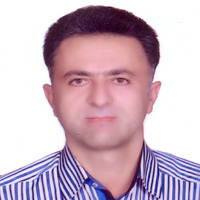The Language of Thought: Myths and Facts
Author(s):
Abstract:
Throughout the years, philosophers and psychologists have striven to solve the mind-boggling question of learning by juxtaposing the two competing theories, namely, empiricism and rationalism. They have usually opted for one and ruled out the other on the grounds that it cannot account for learning because theoretical and empirical evidence discredits it. Since 1965, with the publication of Chomsky's Aspects of the Theory of Syntax in which, he explicitly introduces the notion of Universal Grammar and implicitly employs the term to support Fodor's philosophical view of learning in terms of 'language of thought', the rationalistic arguments seem to have taken over this never-ending and perpetual battle. Here in this article, it is argued that despite its popularity among a good number of scholars, the rationalistic account of learning suffers from serious flaws. A conglomerate of empirical and theoretical evidence challenges the notion of 'language of thought'. Self-interpretive power of the language of thought, inaccessibility of cognitive theories to truth conditional meaning, meaningful experiences, inability to test memory, problems with modularity and regulation are simply some of the arguments that might be raised against the idea of 'language of thought'. Finally, a framework for the acquisition of language is presented.
Language:
Persian
Published:
The International Journal of Humanities, Volume:15 Issue: 1, 2007
Pages:
83 to 95
https://magiran.com/p764036
مقالات دیگری از این نویسنده (گان)
-
Book Reviews in Sciences: Structural and Functional Differences in Lexical Bundles
Vahid Niamadpour, Alireza Jalilifar *
Teaching English as a Second Language Quarterly, Autumn 2024 -
Examining Classroom Observation Forms in the Iranian Context: A Rhetorical Analysis of Academic Commentary in Teacher Evaluation
Amin Ivaz, Alireza Jalilifar *
Applied Research on English Language, Nov 2023


